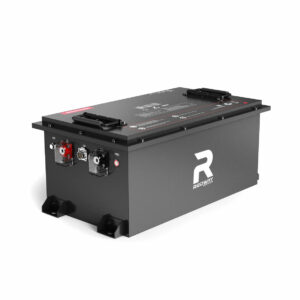What You Need to Know About Nissan Car Batteries?
A Nissan car battery powers the vehicle’s electrical systems and requires periodic replacement. Key factors include compatibility with your model, battery type (flooded, AGM, or EFB), cold cranking amps (CCA), and lifespan (3-5 years). Proper maintenance and understanding warranty terms ensure optimal performance. Always consult your owner’s manual or a certified technician for specifications.
What Happens if a LiFePO4 Battery Gets Wet?
How Do You Choose the Right Battery for Your Nissan?

Selecting the correct battery involves matching your Nissan’s make, model, and engine type. AGM batteries are recommended for start-stop systems, while standard flooded batteries suit conventional engines. Verify CCA ratings (e.g., 650-750 CCA for most Nissans) and group size (e.g., 35, 48, or 51R). OEM batteries ensure guaranteed compatibility, but aftermarket options like Optima or DieHard may offer cost savings.
| Nissan Model | Recommended Battery Type | Average CCA |
|---|---|---|
| Altima | AGM | 700 |
| Rogue | Flooded | 650 |
| Leaf | Lithium-Ion | N/A |
How to Maintain Your Nissan Battery for Longevity?
Clean terminals monthly using baking soda and water to prevent corrosion. Ensure secure mounting to avoid vibration damage. Avoid short trips to maintain charge. Use a trickle charger during long storage. Test battery health biannually. Nissan’s “Battery Saver” mode in newer models reduces parasitic drain by deactivating accessories after 20 minutes of inactivity.
For optimal performance, consider using a battery maintainer if your vehicle sits idle for weeks. Check electrolyte levels in flooded batteries quarterly and top up with distilled water if needed. Modern Nissans with intelligent charging systems require voltage resets after battery replacement to ensure proper charging cycles. Below is a maintenance checklist:
| Task | Frequency |
|---|---|
| Terminal cleaning | Monthly |
| Voltage test | Every 6 months |
| Load test | Annually |
What Is the Cost of Replacing a Nissan Car Battery?
OEM Nissan batteries range from $150 to $450, depending on type (e.g., Leaf EV batteries cost $8,000-$15,000). Aftermarket options start at $100. Labor charges add $20-$50. Premium brands like Bosch or Interstate offer 3-5-year warranties. Always recycle old batteries; retailers often provide $10-$20 credit for core returns.
Can You Install a Nissan Battery Yourself?
Yes, with basic tools: disconnect negative terminal first, remove clamps, swap batteries, and reconnect. However, hybrid/EV models require professional handling due to high-voltage systems. Post-installation, reset the vehicle’s battery management system via OBD-II scanner. Improper installation may void warranties or trigger error codes.
What Are Nissan’s Battery Warranty Terms?
Nissan’s OEM batteries typically include a 36-month limited warranty, prorated after the first year. Coverage excludes damage from improper maintenance, accidents, or aftermarket modifications. Keep receipts and service records. Extended warranties through dealers may add 2-3 years. Third-party sellers like AutoZone offer free replacements within 1-3 years.
How Does Temperature Affect Nissan Batteries?
Cold weather reduces CCA efficiency by 30-50%, straining ignition. Heat accelerates chemical degradation, shortening lifespan. Store vehicles in garages during extremes. Use insulated battery blankets in sub-zero climates. Nissan’s “Cold Package” in Nordic markets includes reinforced batteries with higher CCA ratings.
What Are the Environmental Impacts of Nissan Batteries?
Lead-acid batteries contain toxic materials but are 99% recyclable. Nissan partners with ECOBAT and Redwood Materials for closed-loop recycling. EV lithium-ion batteries are repurposed for energy storage before recycling. Proper disposal prevents soil and water contamination. Always use certified recycling centers.
Expert Views
“Nissan’s focus on AGM technology for start-stop systems reduces emissions but demands precise voltage control. Owners should prioritize regular load tests, especially in urban driving conditions,” says John Keller, automotive engineer. “For EVs, thermal management systems in batteries are critical—avoid frequent DC fast charging to preserve cell integrity.”
FAQs
- How Long Do Nissan Altima Batteries Last?
- Typically 4-5 years. Climate, driving habits, and electrical load affect longevity.
- Does Nissan Use Lithium-Ion Batteries?
- Yes, in electric models like the Leaf. Combustion engines use lead-acid or AGM batteries.
- Can a Dead Nissan Battery Recharge Itself?
- No. Jump-starting or using a charger is required. Deep discharges may cause permanent damage.
